Peugeot 308 vs VW Passat - Differences and prices compared
Compare performance (195 HP vs 272 HP), boot space and price (29200 £ vs 35700 £) at a glance. Find out which car is the better choice for you – Peugeot 308 or VW Passat?
Costs and Efficiency:
Looking at overall running costs, both models reveal some interesting differences in everyday economy.
Peugeot 308 has a clearly perceptible advantage in terms of price – it starts at 29200 £, while the VW Passat costs 35700 £. That’s a price difference of around 6497 £.
Fuel consumption also shows a difference: VW Passat manages with 1.20 L and is therefore decisively more efficient than the Peugeot 308 with 2.30 L. The difference is about 1.10 L per 100 km.
As for range, the Peugeot 308 performs convincingly better – achieving up to 450 km, about 315 km more than the VW Passat.
Engine and Performance:
Under the bonnet, it becomes clear which model is tuned for sportiness and which one takes the lead when you hit the accelerator.
When it comes to engine power, the VW Passat has a noticeable edge – offering 272 HP compared to 195 HP. That’s roughly 77 HP more horsepower.
In acceleration from 0 to 100 km/h, the VW Passat is noticeable quicker – completing the sprint in 5.80 s, while the Peugeot 308 takes 7.60 s. That’s about 1.80 s faster.
In terms of top speed, the VW Passat performs slight better – reaching 250 km/h, while the Peugeot 308 tops out at 225 km/h. The difference is around 25 km/h.
There’s also a difference in torque: VW Passat pulls evident stronger with 400 Nm compared to 300 Nm. That’s about 100 Nm difference.
Space and Everyday Use:
Whether family car or daily driver – which one offers more room, flexibility and comfort?
Both vehicles offer seating for 5 people.
In curb weight, Peugeot 308 is slight lighter – 1453 kg compared to 1573 kg. The difference is around 120 kg.
In terms of boot space, the VW Passat offers convincingly more room – 690 L compared to 412 L. That’s a difference of about 278 L.
In maximum load capacity, the VW Passat performs clearly perceptible better – up to 1920 L, which is about 597 L more than the Peugeot 308.
When it comes to payload, VW Passat a bit takes the win – 577 kg compared to 503 kg. That’s a difference of about 74 kg.
Who wins the race?
The VW Passat proves to be leaves the rival little chance and therefore becomes our DriveDuel Champion!
VW Passat is the better all-rounder in this comparison.
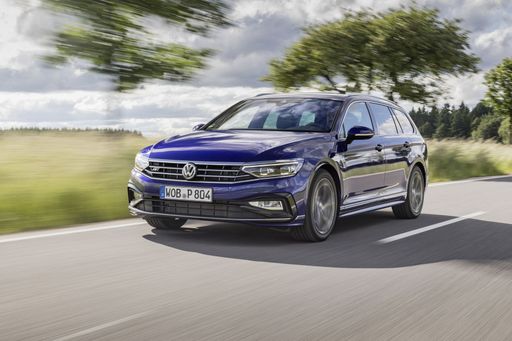
VW Passat
Costs and Consumption
View detailed analysis
Engine and Performance
View detailed analysis
Dimensions and Body
View detailed analysis
Peugeot 308
The Peugeot 308 brings a sleek, feline profile and an unexpectedly upscale cabin, with clever packaging and materials that feel a touch more premium than you might expect. It’s composed on the road, easy to live with for daily life, and a smart choice if you want a stylish hatch that still behaves when the road gets interesting.
details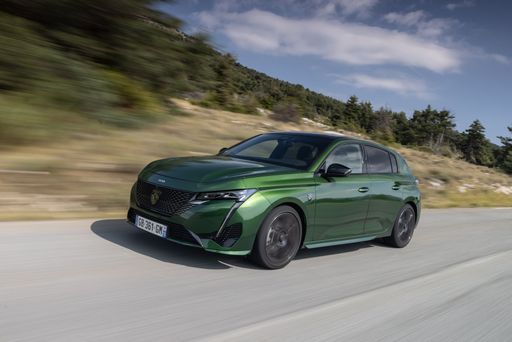
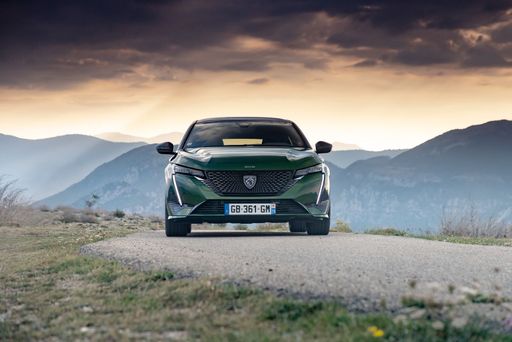
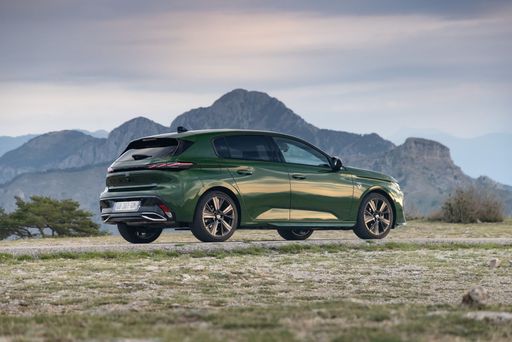
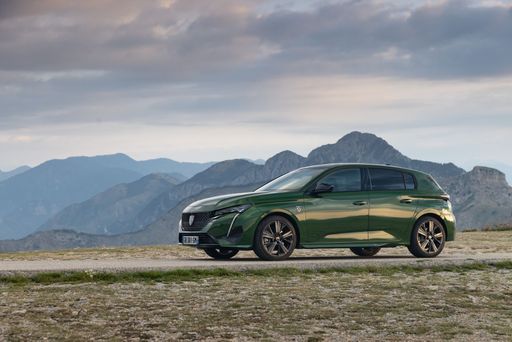
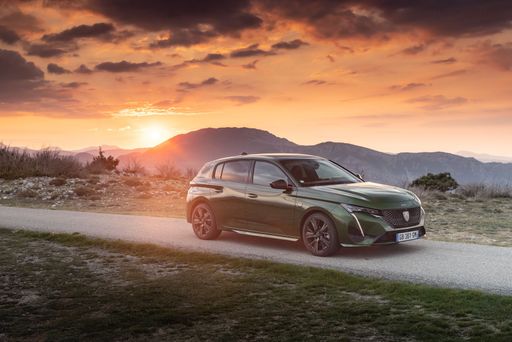
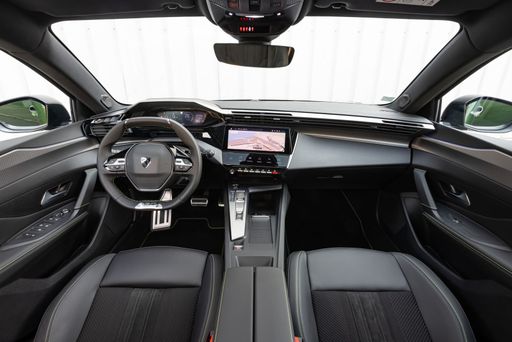
VW Passat
The VW Passat is the grown-up family car that gets the basics absolutely right — roomy, comfortable and built to handle weekday commutes and weekend getaways without fuss. It won't set your pulse racing, but its calm composure and sensible packaging make it boring in the best possible way: a dependable, no‑drama choice for buyers who value practicality over flash.
details
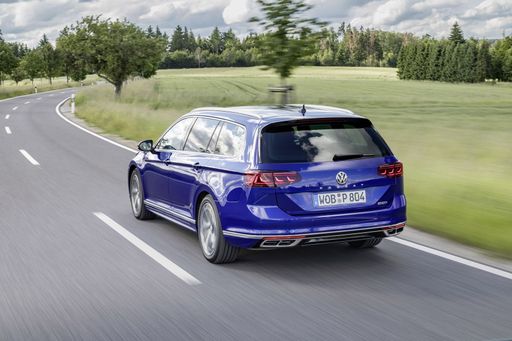
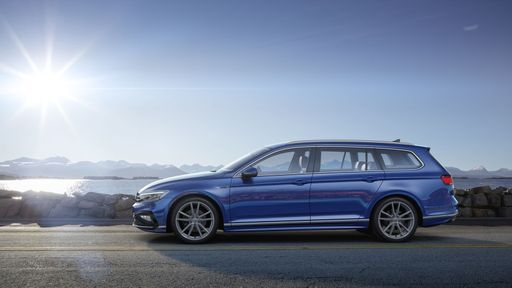
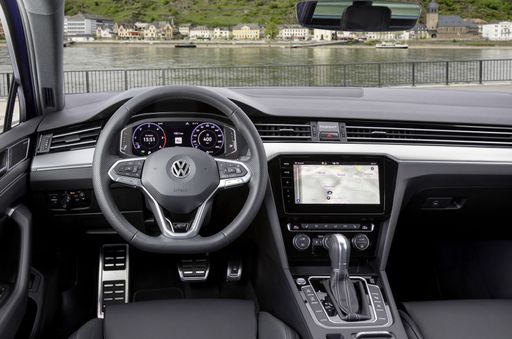

|

|
|
|
|
Costs and Consumption |
|
|---|---|
|
Price
29200 - 42600 £
|
Price
35700 - 58500 £
|
|
Consumption L/100km
2.3 - 5 L
|
Consumption L/100km
1.2 - 8 L
|
|
Consumption kWh/100km
15.60 kWh
|
Consumption kWh/100km
-
|
|
Electric Range
78 - 450 km
|
Electric Range
124 - 135 km
|
|
Battery Capacity
0.40 kWh
|
Battery Capacity
19.70 kWh
|
|
co2
0 - 129 g/km
|
co2
28 - 181 g/km
|
|
Fuel tank capacity
42 - 52 L
|
Fuel tank capacity
45 - 66 L
|
Dimensions and Body |
|
|---|---|
|
Body Type
Hatchback
|
Body Type
Estate
|
|
Seats
5
|
Seats
5
|
|
Doors
5
|
Doors
5
|
|
Curb weight
1453 - 1749 kg
|
Curb weight
1573 - 1858 kg
|
|
Trunk capacity
314 - 412 L
|
Trunk capacity
510 - 690 L
|
|
Length
4367 mm
|
Length
4917 mm
|
|
Width
1852 mm
|
Width
1849 mm
|
|
Height
1438 mm
|
Height
1521 mm
|
|
Max trunk capacity
1258 - 1323 L
|
Max trunk capacity
1770 - 1920 L
|
|
Payload
430 - 503 kg
|
Payload
501 - 577 kg
|
Engine and Performance |
|
|---|---|
|
Engine Type
Petrol MHEV, Diesel, Plugin Hybrid, Electric
|
Engine Type
Petrol, Petrol MHEV, Diesel, Plugin Hybrid
|
|
Transmission
Automatic
|
Transmission
Automatic
|
|
Transmission Detail
Dual-Clutch Automatic, Automatic Gearbox, Reduction Gearbox
|
Transmission Detail
Dual-Clutch Automatic
|
|
Drive Type
Front-Wheel Drive
|
Drive Type
All-Wheel Drive, Front-Wheel Drive
|
|
Power HP
131 - 195 HP
|
Power HP
122 - 272 HP
|
|
Acceleration 0-100km/h
7.6 - 10.6 s
|
Acceleration 0-100km/h
5.8 - 10.7 s
|
|
Max Speed
170 - 225 km/h
|
Max Speed
212 - 250 km/h
|
|
Torque
230 - 300 Nm
|
Torque
250 - 400 Nm
|
|
Number of Cylinders
3 - 4
|
Number of Cylinders
4
|
|
Power kW
96 - 144 kW
|
Power kW
90 - 200 kW
|
|
Engine capacity
1199 - 1598 cm3
|
Engine capacity
1498 - 1984 cm3
|
General |
|
|---|---|
|
Model Year
2025
|
Model Year
2024 - 2025
|
|
CO2 Efficiency Class
C, D, B, A
|
CO2 Efficiency Class
G, D, E, B
|
|
Brand
Peugeot
|
Brand
VW
|
Is the Peugeot 308 offered with different drivetrains?
Available configurations include Front-Wheel Drive.
The prices and data displayed are estimates based on German list prices and may vary by country. This information is not legally binding.
